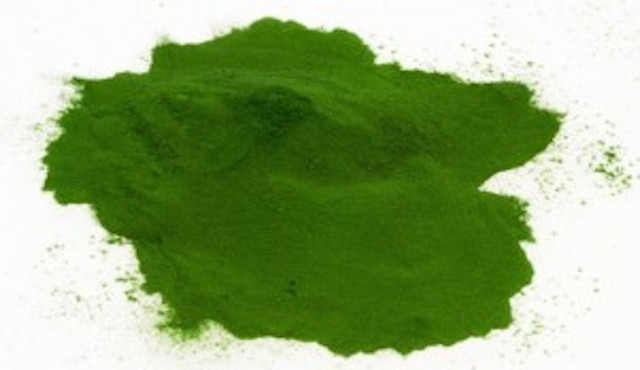Spirulina is often mistaken as an herb because of its nutritional benefits, but it is actually a cyanobacteria, which is a blue-green algae found in freshwater lakes, ponds, and rivers.
Let’s look at the many health benefits of spirulina.
Anti-inflammatory:
Spirulina is an excellent source of Gamma-linolenic acid, which according to a study published in The Journal of Rheumatology is a powerful anti-inflammatory agent. Chronic inflammation is considered a major risk factor for serious diseases including arthritis, heart disease, and cancer.
Brain health:
The antioxidants in spirulina provide potent anti-inflammatory benefits that may help the brain. Dietary supplementation with spirulina was shown to reduce ischemic brain damage and possibly reduce the risk of stroke.
Detox benefits:
Spirulina is an excellent source of chlorophyll, which is one of nature’s most potent detoxification nutrients. It removes toxins from the blood, and binds with heavy metals, eliminating them from the body.
Digestive health:
This potent algae is a good source of dietary fiber, which is an essential nutrient for good digestion. Spirulina also promotes healthy bacteria in the gut, which aids digestion as well.
Eye health:
Spirulina is a good source of lutein and zeaxanthin, which are compounds that help reduce the risk of age-related eye diseases such as macular degeneration and cataracts. “These special pigments help protect your eyes from damage8 by slowing down ultraviolet-induced oxidation of lipid membranes, thereby helping prevent degeneration of your macula,” states Dr. Joseph Mercola.
Heart health:
According to a 2007 study from the National Autonomous University of Mexico, 4.5g of spirulina per day significantly reduced triglyceride levels, lowered LDL cholesterol, and reduced blood pressure, which all contribute to heart health.
Immune booster:
Spirulina is packed with antioxidants that help strengthen the immune system, promoting cell regeneration, faster wound healing, and quicker recovery from cold and flu.
Liver health:
Spirulina may prevent non-alcoholic fatty liver disease.
TIP: Add 2Tbsp to your favorite smoothie or juice recipe.
You can also take it in a supplement form.
Make sure to select organic Spirulina, as others can have nitrate compounds as additives. We like Mountain Rose Herbs and Now Spirulina.
For the health benefits of chlorella.
Note: None of the information in our website is intended to diagnose, treat, cure or prevent any illness or disease. The content on our website is for educational purposes only.
DON’T FORGET to sign up for our weekly newsletter to get our latest articles, updates, free recipes and giveaways.
REFERENCES:
1. Mercola, Joseph, DO. “Just 1 TBSP of Spirulina a Day: An Easy Way to Lower Your Cholesterol, Blood Pressure And…” Mercola.com. Mercola.com, 17 July 2011. Web. 06 Mar. 2014.
2. “Dietary Supplementation with Blueberries, Spinach, or Spirulina Reduces Ischemic Brain Damage.” Science Direct. Experimental Neurology, May 2005. Web. 06 Mar. 2014.
3. “Antihyperlipemic and Antihypertensive Effects of Spirulina Maxima in an Open Sample of Mexican Population: A Preliminary Report.” BioMed Central. Lipids in Health and Disease, 26 Nov. 2007. Web. 6 Mar. 2014.
4. “The History and Health Benefits of Spirulina.” NaturalNews. NaturalNews, 14 Aug. 2013. Web. 06 Mar. 2014.
5. “Suppression of Acute and Chronic Inflammation by Dietary Gamma Linolenic Acid.” National Center for Biotechnology Information. The Journal of Rheumatology, June 1989. Web. 06 Mar. 2014.
6. “Nutrition Facts and Analysis for Seaweed, Spirulina, Dried.” Self Nutrition Data. Self Nutrition Data, n.d. Web. 06 Mar. 2014.
7. “Studies on the Preventive Effect of Spirulina Maxima on Fatty Liver Development Induced by Carbon Tetrachloride, in the Rat.” Science Direct. Journal of Ethnopharmacology, Feb. 1999. Web. 06 Mar. 2014.

















